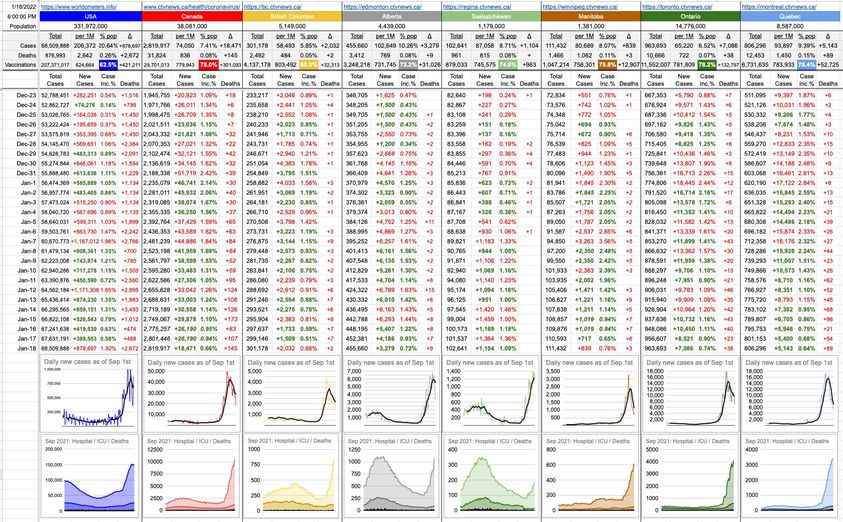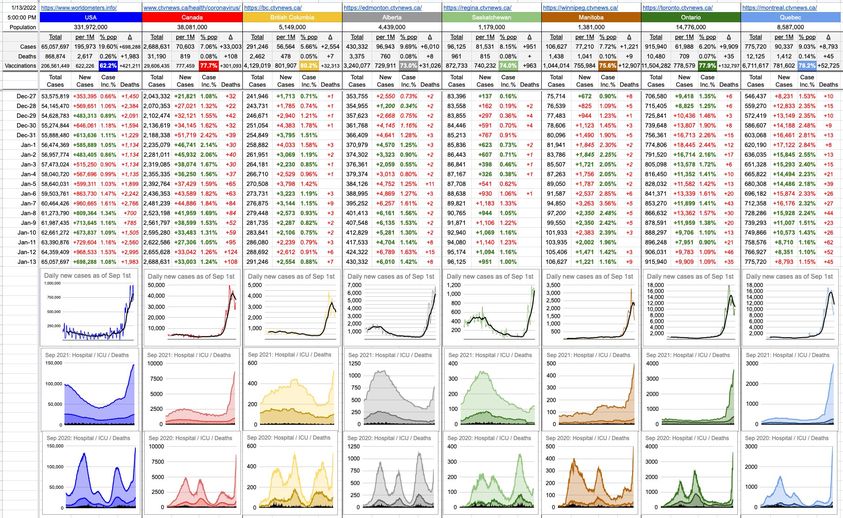January 18, 2022
At the start of the pandemic, it became clear that John Horgan wanted no part in the decision-making. This was intelligent for two main reasons: First and foremost, let the experts do their thing. Secondly, if the shit hits the fan, he can point fingers at the experts who messed it all up.
As frustrated and pissed-off and as much finger pointing as there has been, history will be very kind to the province of BC, especially when compared to other similar and comparable jurisdictions. And, to be honest, love her or hate her, the decision-making that has come from the PHO hasn’t been perfect, nor has it necessarily been consistent, but it’s been far more good than bad… and, to the greater benefit of all of us, has been driven by science and not politics.
I know a lot of people take exception to that, but it’s because you’re only comparing the local apples to themselves. Look around at other provinces, states and countries and you can see the astonishing damage being done by politically-driven agendas. I can assure you, it was not John Horgan who picked up the phone and said, “Hey Bonnie… you gotta open up those gyms, eh…”
And really, there’s no better proof than this recent gym debacle. Over the last seventy-two hours, there have been near-riots with respect to the messaging that come out of the PHO. That’s what happens when you let real doctors talk, and not political spin-doctors. A politician would have worded things very differently.
So… gyms have been shut down for a while. And a few hours before they’re hopefully set to re-open, the message we get is that they’re to remain “closed indefinitely”. What the PHO.
Could that have been worded any better? That’s not the right question. More like, could that possibly have been worded any worse? No. It could not have been worded any worse. If you really want to piss of everyone as much as possible and perhaps instigate some civil unrest, just make it sound like gyms are closed forever.
Indefinitely – what does that word mean? Here’s the textbook definition: “for an unlimited or unspecified period of time”. You know, that’s a big difference… and we’re all very used to it meaning the former, especially these days. A business putting up a sign that says they’re closed indefinitely comes shortly before the “For Lease” sign appears. Of course, nobody meant to imply that gyms are closed for good… but, even so, the word has this ominous ring to it, like it’ll be months. The Coquihalla Highway, which was very recently “closed indefinitely” (and we all thought it would be several months), is today open to all traffic.
If the PHO had managed to word things a little more clearly, it would’ve been a very different last couple of days: “Hey guys, we’re reviewing where we’re at. Numbers are certainly growing, but, around here, modelling shows that while hospitalizations may still rise a bit, we’re perhaps past the worst of it and can consider opening some things. On that list, of course, are gyms… and this week we’ll have more to say. Rather than arbitrarily announcing another month of closures, give us a few days to figure it out. Until then, they remain closed… but hang tight”. Jeez… that would’ve been a lot better, eh?
The unfortunate part of it is that there’s a demographic that thinks this is in response to all of the complaining. Like a bunch of mask-less people working out in Metrotown is what swayed the Provincial Health Office’s policy. No, it wasn’t. But you’ll never convince them, because that’s also the demographic that fails to see the big picture. Like… none of them were wearing masks, because, for some reason, supporting businesses and their right to operate also means you don’t believe in masks. Makes sense, right? Of course not.
We are all in the same boat, and the waters are rough… but if you look at the horizon, you can see the other boats that are a week or two ahead of us… and while it looks pretty stormy up head for the next little bit, beyond that there’s a hint of sunshine, blue skies and calmer water. Hopefully those who enjoy rocking the boat don’t make us all seasick… and I don’t mean that from a “infecting us all with Covid because they don’t wear masks” point of view. I mean it more from the incessant “us vs. them”, black/white right/wrong polarizing that this pandemic has imposed on all of us. We’ve all had enough.




